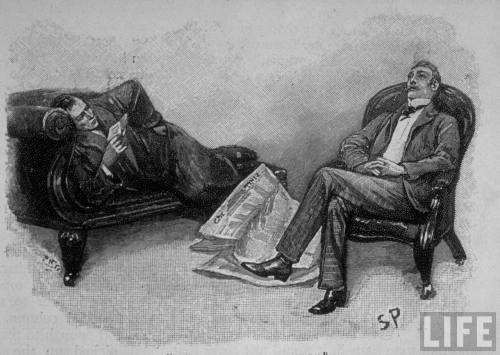"So we’re doomed, then, to reboots of reboots of ‘Columbo,’ drifting ever farther from the source like a damaged battle cruiser in space?"
❈❈❈❈❈❈❈
Two authors,
James Parker: a contributing editor at The Atlantic and has written for Slate, The Boston Globe and Arthur magazine. He was a staff writer at The Boston Phoenix and in 2008 won a Deems Taylor Award for music criticism from the American Society of Composers, Authors and Publishers
and
Pankaj Mishra:
author of several books, including “The Romantics: A Novel,” which won the Los Angeles Times Art Seidenbaum Award for First Fiction, and "From the Ruins of Empire,” a finalist for the Orwell and Lionel Gelber Prizes in 2013. He is a fellow of the Royal Society of Literature and contributes essays on politics and literature to The New York Review of Books, The New Yorker, The Guardian of London and The London Review of Books
asked the question in The New York Times Book Review. They also attempted to answer the question and provide some analysis via changes in history, culture and technology, rather than passing off snark 'n snort superiority as thought. The full piece is here.
❈❈❈❈❈❈❈
A pull from part of what felt to me most interesting from Pankaj Mishra's discussion of James Bond:
Britain is geopolitically too insignificant, and non-Western markets — as well as political sensitivities — matter too much now for 007 to be able to fulfill neo-imperialist fantasies of power and domination. The artless seducer of women with names like Pussy Galore and Octopussy, a man who once charmingly hoped for sex to have “the sweet tang of rape,” also risks driving away a crucial demographic from the theaters. It is surely a sign of the times that in “Skyfall” a non-misogynist Bond retreats to his family estate in secession-minded Scotland, improbably preoccupied with a childhood trauma after what seems to have been a wholly unexamined life.
“Relax. You need to relax!” the film’s villain taunts him. In the age of Jason Bourne, the C.I.A.'s intriguingly mislaid human drone, and Edward Snowden, Bond does look ready for a long sabbatical. Fans need not despair, however. William Boyd’s Graham Greene-reading Bond in the novel “Solo” hints that recycled myth can occasionally construct a fresh relationship with history. Assigned to protect the interests of oil companies in a nasty West African civil war in 1969, Bond appears to himself as “insubstantial and weak,” even “unmanned”: a fleeting glimpse of the commonplace, everyday tragedy of life — disappointment, failure and decay — that might suit remakes better than thickly costumed farce. [Having just watched and enjoyed as mindless entertainment, Red 2, this observation particularly gave me something to mull about about. The only thing resembling thought that drifted through my blank mind while watching this comic book on screen that sort-of stars actors I like to look at, Catherine Zeta-Jones, Helen Mirren and John Malkovich, was the same as I had when watching the first Red: that Bruce Willis can be an effective comic actor -- who knew? -- and that the way he plays Frank Moses, and how he looks, reminds me a whole lot of Jerry Doyle's Garibaldi in Babylon-5, who I liked a lot. I had a lot actual thoughts though, watching Garibaldi and B-5.]
What interested me most in James Parker's discussion of reboots:
Not to get too portentous about it, but this question for me points like a flaming golden arrow to a much larger question, which has to do with the health of our collective imagination. That is, are we caught in a diminishing loop of derivative creativity, some kind of stranglehold of the secondhand? Have we wandered deeper into Eliot’s Waste Land — the fragmented panoramas, the “heap of broken images,” only now with more zombies — than the poet himself could have foreseen? Can it be that our highest form of cultural expression is the YouTube mash-up?
“The originators, the exuberant men, are extinct,” Evelyn Waugh wrote in 1957, “and in their place subsists and modestly flourishes a generation notable for elegance and variety of contrivance.” We do not have Tolkien, in other words: We have J. J. Abrams. Or Steven Moffat, lead writer of “Doctor Who” since 2009 and co-creator (if that’s the right word) of the new BBC/Benedict Cumberbatch version of Sherlock Holmes. Nothing against Abrams and Moffat; they’re both clearly brilliant — zanily gifted reorganizers and rewirers of material. “Elegance and variety of contrivance,” yes indeed, by the bucketload. My point is that the material, for the most part, is not theirs. They work in tropes, memes, brands, jingles, known quantities, canned reactions, market-tested flavors, whatever you want to call them. The cultural critic Simon Reynolds has named this phenomenon “retromania”: He published a fascinating book about it in 2011. Tolkien, too, was of course drawing on his sources, his own scholarly vaults of inspiration, his Kalevalas and Nibelungenlieds and all that. But he was closer to the root, to the first fictive impulse. Which makes “The Lord of the Rings” a rather juicier and more self-sustaining “subcreation” — to use Tolkien’s terminology — than, say, “Star Trek Into Darkness.”
The mileage among opinions will vary.



No comments:
Post a Comment